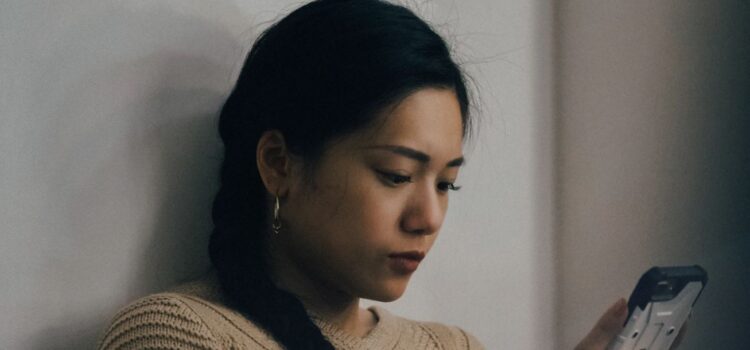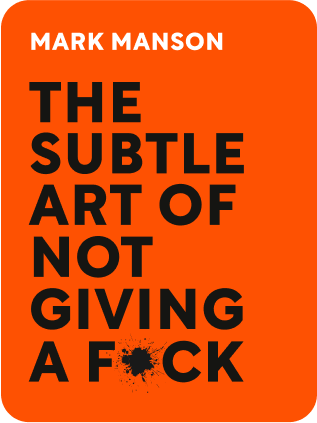

This article is an excerpt from the Shortform book guide to "The Subtle Art of Not Giving a F*ck" by Mark Manson. Shortform has the world's best summaries and analyses of books you should be reading.
Like this article? Sign up for a free trial here .
What is victimhood chic? How can blaming others for your problems create even more problems?
“Victimhood chic” is Mark Manson’s term for the trend of playing the victim. Social media heightens this problem by giving people a platform to join the public blame game. However, this trend creates a repeating cycle of outrage that undermines productive conversation.
Continue reading to learn more about the victimhood chic trend.
Victimhood Chic
Many people are born with disadvantages. They may feel as though they got the short end of the stick and they’re helpless to do anything about it, so they avoid taking responsibility. This trend of playing the victim is what the author of The Subtle Art of Not Giving a F*ck calls “victimhood chic.”
But though it’s not their fault, they’re still responsible — and choices have impact.
For example, in poker, a player who gets poor cards can still win. The outcome of the game is determined by the players’ choices. It’s the same with life.
Example: A group of teens with obsessive-compulsive disorder (OCD) were trying a new therapy. Therapists emphasized that the obsessive thoughts were not the teens’ fault. They encouraged the teens to accept these thoughts, but to choose a value more important than their OCD value (for instance, instead of the value of washing hands repeatedly, it might be getting out of the house more often). With new values in place, desensitization exercises were more effective. The teens learned that while they hadn’t chosen their conditions, they could choose how to respond.
Despite past tragedies, problems, and bad experiences, we are still responsible for moving on and making choices.
Perpetual Victims
People who follow victimhood chic often try to shift responsibility for solving their problems to others. Blaming someone else creates a feeling of moral rightness, or a high.
Social media help enable this behavior by making it easy to shift responsibility to someone else. People join in a public blame game, sharing injustices to generate sympathy and attention, which rewards those who feel victimized. Moral indignation makes them feel good and they get addicted to the feeling of victimhood chic.
Here are some destructive effects:
- People on both the right and left, rich and poor, from every demographic group claim to be victims.
- People who are offended claim they’re being oppressed, and expect outrage and attention.
- There’s a repeating cycle or spiral of outrage: Media find something offensive, they broadcast it, this creates outrage, they broadcast the outrage to generate more outrage.
- The propensity of so many to declare themselves victims over small things distracts attention from real victims.
- It threatens democracy. Part of living in a democratic society is tolerating people and views you disagree with.
We’ve all seen this counterproductive phenomenon. Instead of participating, you should:
- Maintain a healthy skepticism toward media and avoid categorizing others.
- Practice healthy values of honesty, doubt/uncertainty, and open-mindedness over destructive values of being right or morally superior.
- Nurture democratic values to support our political system.
Instead of playing the victim and expecting special treatment when you encounter disagreement, take responsibility for your feelings and choices.
Responding to Tragedy
Tragic and horrible things happen. You don’t choose them but you do choose how you handle the ramifications and whether or not you choose to play the victim.
For example, if you’re robbed, you didn’t choose it, but you made choices nonetheless. For instance, you made choices at the time (running, screaming, or fighting), and later you chose how to respond to the physical and emotional aftereffects.
In 2009, a Pakistani schoolgirl, Malala Yousafzai, was shot in the face by the Taliban for speaking out against a ban on educating girls. She nearly died, but after recovering she chose to speak out against violence and oppression of girls in Muslim countries. Despite continuing threats on her life, she wrote a book, won the Nobel Peace Prize, and inspired others to help bring change.
We all experience pain of some kind — we decide what it means and how to respond and whether we play into victimhood chic or not.

———End of Preview———
Like what you just read? Read the rest of the world's best book summary and analysis of Mark Manson's "The Subtle Art of Not Giving a F*ck" at Shortform .
Here's what you'll find in our full The Subtle Art of Not Giving a F*ck summary :
- How to clarify what's important to you (and not just what you think should be important)
- Why it's okay for things to not always go well in life
- Why you need to care about fewer things






